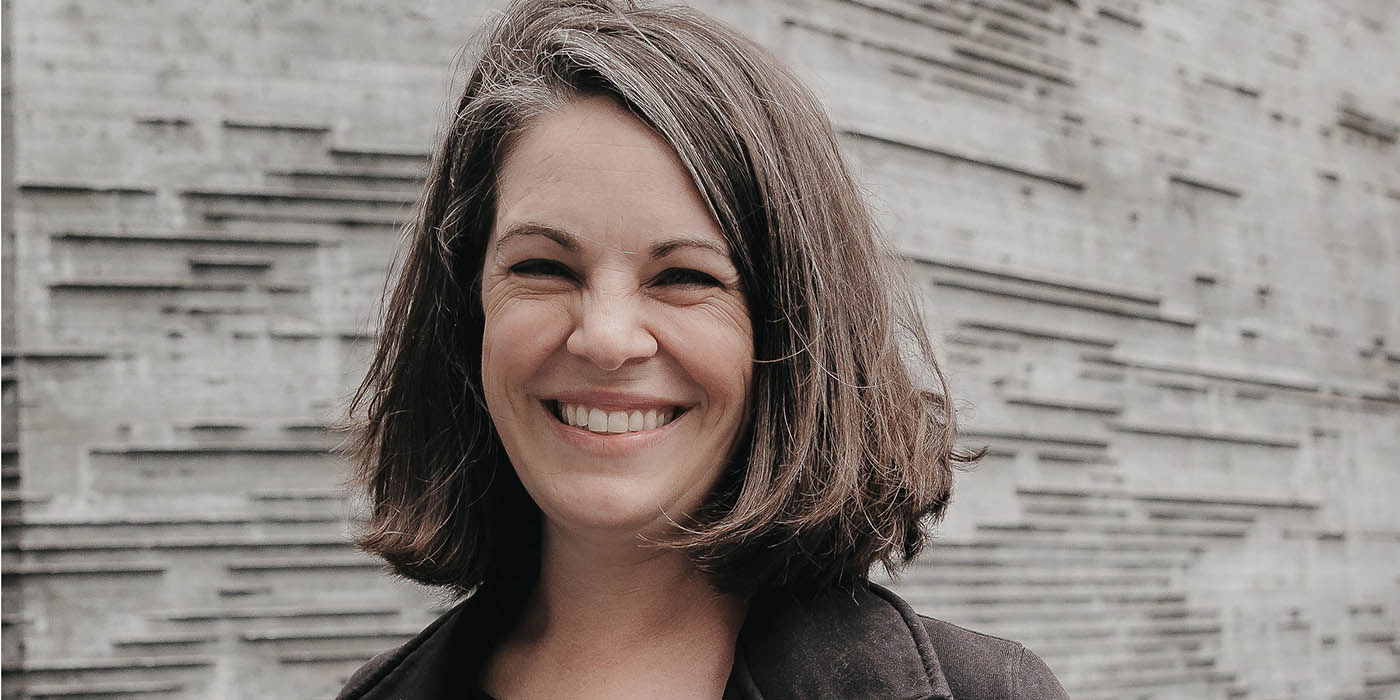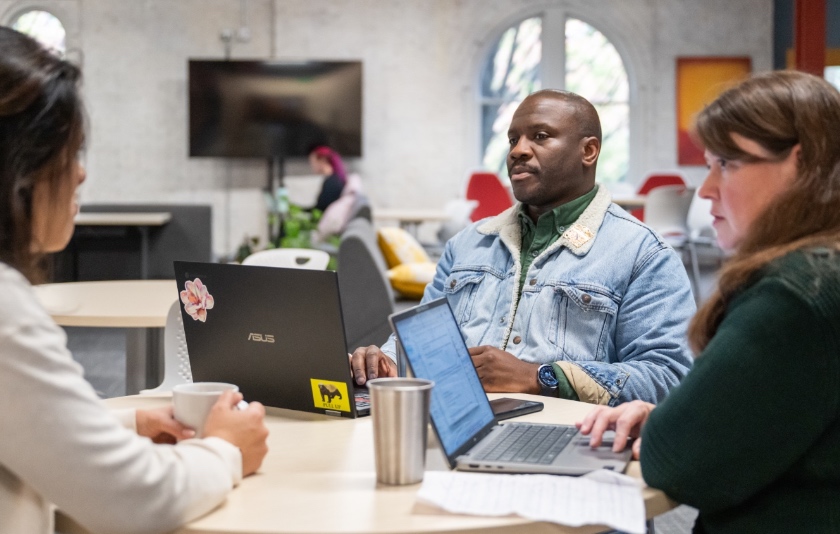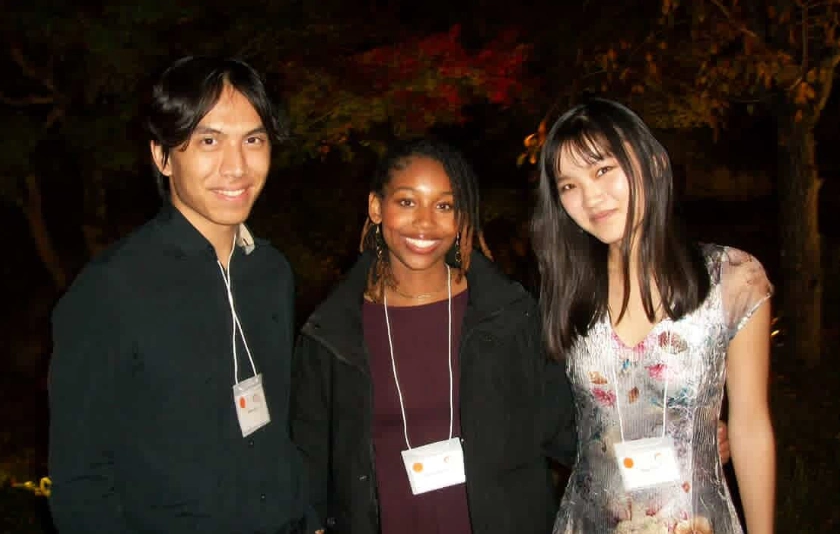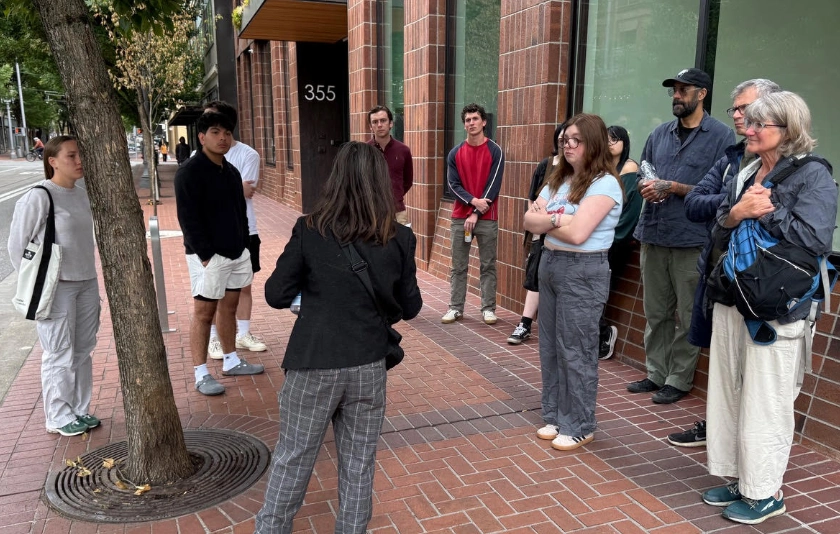Advice from a Willamette MBA professor not only guided Ashleigh Corker’s career at two of the world’s biggest e-commerce companies — it even worked its way into her wedding vows.
Professor Debra Ringold once told Corker’s marketing class, “You want to find customers who love you for what you do best,” a framework Corker BA, MBA ’06 felt could apply to nearly anything, from who she should marry (“Find someone who loves you for what you do best,” she told wedding guests), to jobs at Amazon, Wayfair and most recently, as co-founder of sustainable clothing brand Proto101.
Wisdom with that kind of reach isn’t typical for a marketing class. But it’s not entirely unusual coming from a university that espouses a civic mindset through its motto, and one that’s followed her since graduation.
A Willamette first
Compelled by the idea of an economics major at a small liberal arts school, she immediately knew she wanted to be part of Willamette’s 3+2 program.
Professor of Economics Don Negri generated her interest in statistics and data science, long before it became a common prediction tool (“He’s been fundamental to a lot of what I do,” she said), while her non major classes helped her learn how to connect disparate ideas, hone her writing and build the muscle that you can figure anything out with time. The most useful classes were communication, where she worked on public speaking, she said.
“At the time I thought of it as a fluff class, but in retrospect it was very valuable,” she said.
In the Angel Fund program during her MBA, Associate Professor of Strategic Management Robert Wiltbank had her sitting side-by-side with venture groups, taking notes on potential companies. “It was just fun to be able to evaluate the risks of business,” she said.
In 2004, still earning her MBA, she co-founded EnQueue, a web-based notification technology company that offered an alternative to restaurant pagers. Corker and her classmate saw the limitations of pagers — you couldn’t wander far from the restaurant, people tended to toss the expensive devices into the trash — so they came up with an idea ahead of its time: sending text notifications from a computer.
Even with a solution that worked for the restaurant and healthcare industries, starting a tech company was challenging, and she departed a year after she graduated. Corker’s experience at Willamette was faster than average, more like a 2+2 instead of a 3+2 — thanks to several advanced placement credits from high school, she became the first student to finish an undergraduate degree and MBA in four years.
Following the advice of her MBA advisor, she didn’t take a break after graduating and found work as an investment analyst in Seattle for a few years before the financial crisis hit, which prompted her to take a year off to do some consulting work.
In 2010, she became senior manager of inventory planning at Amazon, forecasting the inventory for women’s shoes, and two years later, moved to Boston after her fiance got into business school.
Fast rise
In 2012, Wayfair was the largest and fastest-growing retailer in the city.
The home furnishings and retail giant had been around for a decade, expanding from one website to more than 250 individual sites. By the time Corker applied, the founders had recently moved all of their e-commerce sites into one brand and it was taking off.
Corker remembered Wiltbank’s advice — join a fast-growing company because there will be more opportunities — so she did. Within four years, she rose from senior manager of pricing and assortment planning to its director, building a team that used statistics and machine learning to maximize return on shelf space.
“I was lucky,” she said. “I joined at a time that afforded me an opportunity to experiment and provide value in a bunch of different areas. There weren’t enough people to do what needed to get done.”
Corker and her husband were debating on whether they wanted to stay in Boston or Seattle long term when Amazon resolved the matter for them in 2016: The company offered her a job establishing the supply chain for its private label fashion brands. She built 30 labels from the ground up, using data science to create better products, gauge inventory for brand-new ones and group millions of barcodes into more meaningful “buckets” to help consumers sort and find products easier.
But as the pandemic wore on, and racial injustice gripped the nation, long-held ideas that Corker and a few of her Amazon colleagues had about improving the apparel industry — diversity from the top-down, better quality products, a focus on sustainability — started to coalesce into a new company.
With decades of retail and apparel experience between them, they quit Amazon and launched Proto101 this past year, creating men’s clothing out of what she describes as “super yummy and delicious” fabric engineered specifically for the company. A women’s line will be offered this summer, and for every T-shirt sold, Proto101 plants a tree. Hence its tagline: Look good. Feel good. Do good.
Neutralizing the company’s environmental impact was important to Corker, who wanted to devote time to something bigger than herself, starting with her growing family. A parent of three, she’s developed a newsletter, Happy Volcanoes — a nod to her children, who are named after volcanoes in the northwest — that delivers summarized child-rearing literature for time-starved parents at developmentally-appropriate times.
Willamette’s motto has often been in the back of her mind, both when she established the meaning of her company and when she thinks about her future.
“I spend a lot of time thinking about the morality of work and how we spend this time — it’s a big indicator of our values,” she said. “You can either make a lot of money, pay your taxes and donate to good causes, or you can simply choose what you work on.”




